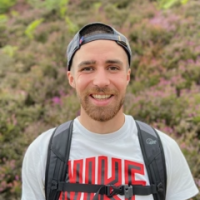A coup in Russia, an imploding sub near the Titanic, and rising mortgage rates are just some of the disasters of recent days. The headlines of the past week have featured plenty of tragic stories and yet there was one story which I wish had more of an impact.
Over the past week 7,000 athletes representing approximately 170 countries have congregated in Berlin for this year’s Special Olympics. The Special Olympics, I learnt this week, is a sporting tournament for people with intellectual disabilities and exists to shift “focus to what our athletes CAN do, not what they can’t”.[1]
This incredible event grew out of the work of Eunice Kennedy Shriver who was appalled at the unjust and unfair treatment those with intellectual disabilities had to face.[2] She wanted to give children with intellectual disabilities a place to play and to see what they could do, rather than focussing in on what they can’t do.[3]
The legacy of the Special Olympics, and the role it plays in supporting and celebrating tens of thousands of people each year, is a powerful testament to the value and dignity of each and every person and in particular the immense value and contribution of those who have special needs.
Whilst the Special Olympics is a great moment to celebrate the abilities of a great range of athletes across a wide range of sports and competitions, I couldn’t help but reflect on the mixed and rather dysfunctional story our society presents when it comes to those with learning difficulties or disabilities more generally.
On the one hand we live in a society that is neurotically obsessed with equality and protecting the vulnerable. Indeed, our fixation with vulnerability is such that to hold power or privilege in any way is to have a target on your back and be subject to suspicion by virtue of your identity alone. The heroes of our society are those considered vulnerable – the refugee, those with mental health issues, the LGBTQI+, women, those from ethnic minorities.
On the other hand, we have disability discrimination baked into our abortion laws in which those with Down Syndrome or other disabilities (including conditions as minor as cleft lip) can be aborted up to birth, sidestepping the 24-week limit placed on other babies. It seems our concern for the vulnerable is rather selective.
Though we are thankfully still free from the horror of euthanasia in this country, campaigners continue their push to see this change. The stories they use are often compelling, picking up on desperately sad cases and advocating for ‘choice’, ‘control’, ‘freedom’, and ‘the right to self-determination’ as fundamentals of a free and flourishing society. Whilst this is clever politicking, what is never recognised is the impact of introducing euthanasia on some of the most vulnerable people in society, including those with disabilities.
Research coming out of Canada (where euthanasia is legal) regarding Canadian attitudes to further liberalisation of the laws presents some shocking findings, with 50% of respondents firmly or moderately in favour of allowing euthanasia on the grounds of disability.[4]
Just as liberal abortion laws disproportionately condemn those with disabilities, euthanasia seems to be heading in the same direction – eroding the sacred value of human life and reducing dignity to the mechanistic principles of function or form.
As Christians this should greatly grieve our hearts. We have a God who sits on a throne of righteousness and justice (Psalm 89) and who upholds the cause of the oppressed (Psalm 146). We have a God who made all humanity in His image (Genesis 1) and who knit us together in our mother’s womb (Psalm 139).
God cares for the vulnerable, but His concern is far wider than the narrow field celebrated and upheld in our society today. And as Christians, we are to follow His ways, we are to be a people with a concern and a love for those not noticed or valued by society.
And this is a further joy-filled aspect of the Special Olympics because for Eunice Kennedy Shriver it was “her love of God, her devotion to her family, and her relentless belief in the dignity and worth of every human life [that meant], she worked without ceasing—searching, pushing, demanding, hoping for change.”[5]
Her work, as typified by this week’s games, stands as a rejection to a society that discriminates against those with disabilities and that actively practices eugenics to remove them from public life.[6]
Yet Kennedy Shriver’s work also stands as a testament to the value of not simply pointing out a problem and standing in opposition to it but to also proactively putting forward a better story which focusses in on a solution, changing people’s perceptions, and improving lives for the better.
“She founded the movement that became Special Olympics, the largest movement for acceptance and inclusion for people with intellectual disabilities in the history of the world. Her work transformed the lives of hundreds of millions of people across the globe, and they in turn are her living legacy.” [7]
In a world where those with disabilities continue to face discrimination in British legislation, and where efforts are ongoing to further threaten their freedoms and protections (not to mention the much-needed debate about funding and support for those with disabilities), Kennedy Shriver’s work stands as a powerful example of how to present a better story.
Let us take note!
______________________________________________________________________________________
[1] See the Special Olympics website for more information: https://www.specialolympics.org/about/mission?locale=en.
[2] See the Special Olympics website for more information: https://www.specialolympics.org/about/history/the-beginning-of-a-worldwide-movement.
[3] See the Special Olympics website for more information: https://www.specialolympics.org/about/history/the-beginning-of-a-worldwide-movement.
[4] ‘Medical Assistance in Dying in Canada’ by Research Co. , May 5 2023. https://researchco.ca/wp-content/uploads/2023/05/Tables_MAiD_CAN_05May2023.pdf?fbclid=IwAR32JKqiqh2epY48G2RaOA52GF5JGA2ImdvsPxrvSe2FD1dugNzlo3xDJIY.
[5] ‘Statements on the death of Eunice Kennedy Shriver’, 9th August 2011, https://www.bostonherald.com/2009/08/11/statements-on-the-death-of-eunice-kennedy-shriver/.
[6] ‘”What kind of society do you want to live in?”: Inside the country where Down syndrome is disappearing’, Juliane Quinones and Arijeta Lajka, 2017, https://www.cbsnews.com/news/down-syndrome-iceland/.
[7] ‘Statements on the death of Eunice Kennedy Shriver’, 9th August 2011, https://www.bostonherald.com/2009/08/11/statements-on-the-death-of-eunice-kennedy-shriver/.

